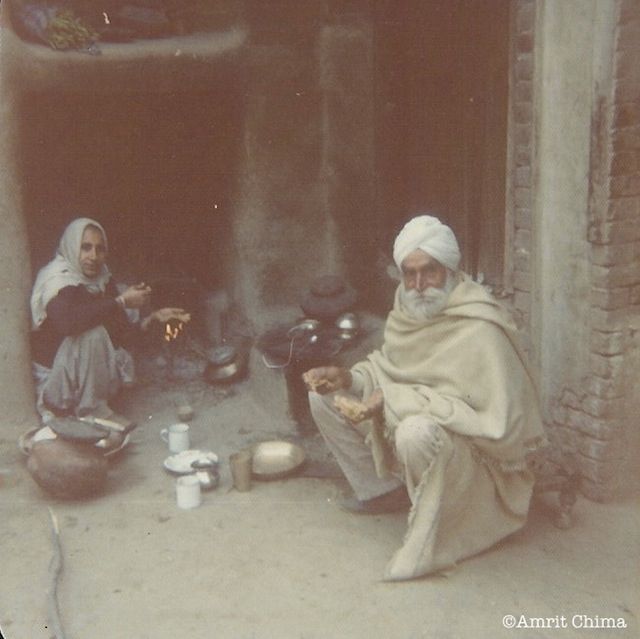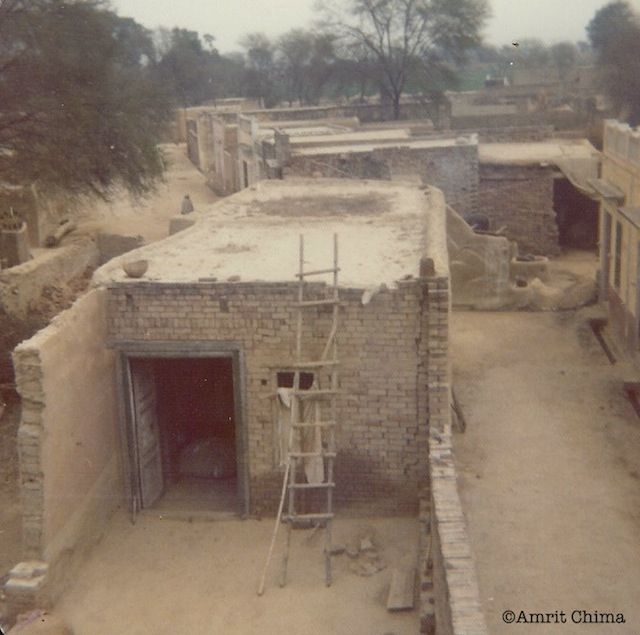
Darshan: Amrit Chima's Novel about a 100-Year Journey Across Continents–Part I: India
The Golden Temple in Amritsar, the holiest Sikh place of worship.
India—the land of Hindu gods, Bollywood, yoga, and software technology parks—was also once a nation exploited by the iron rule of the British Raj, an era brought about by England’s (and other Western European countries’) desire to acquire wealth through trade and colonization of the Americas and other Asian countries. Around the turn of the 20th century, Indian villages were hit hardest by the colonial regime as farmers labored to feed themselves, as well as their nation, while under the oppressive tax burden of the ruling English. Compelled to take out loans, men of rural Northern Indian sought the aid of moneylenders to ease their trouble. Over time, these corrupt and crooked lenders began to alter their books and unfairly hike up their interest rates, forcing men off their farms, taking fertile ancestral land into their own possession. Enraged and dejected, these farmers sometimes succumbed to murderous impulses. A family’s stolen livelihood in exchange for a life.
It is here that Untapped Cities writer, Amrit Chima, begins the story of her debut novel Darshan. One of the main characters in her book, Baba Singh, is inspired by her great-grandfather, Harnam Singh Chima, who is rumored to have killed a man in his village. Chima family lore tells of Harnam Singh fleeing from police—pelting his would-be captors with rocks—to hide in another village where he then eventually married and had children.
The Chimas eventually migrated to Fiji and ultimately the Bay Area, and as with most histories passed on by word of mouth, quite a number of details were lost throughout the generations. Nonetheless, Chima was captivated by the intrigue. In her book, she links this alleged murder to a moneylender, as well as to a number of other historical trials of the period.

Above and below c.1970s: Village in North India. As shown in the 2010 photo below, advancement has been slow in these rural areas, and it seems that not much has changed. Very helpful, as Chima was able to use these family photos for setting descriptions in her novel.

Chima’s novel fluidly moves through the 20th century, chronicling the coming of age of Baba Singh, the young boy who commits a murder and is haunted by his actions; the bitterness of regret and guilt he then passes onto his son, Manmohan; and the tragic splintering of the next generation’s relationships with each other as a result of the family’s dark history. Against the backdrop of a declining British empire—from India to China to Fiji—one boy’s act of rebellion against tyranny spirals out of control, damaging his psyche, as the world around him continuously confounds his sense of order and justice.
The fictional Baba Singh is 21 years old and a young father when the tragic 1919 massacre in Amritsar’s Golden Temple—a major Sikh holy place of worship—takes place. It is based on actual event known as the Jallianwala Bagh massacre. Here, history and story closely parallel. Prompted by the ongoing tax levies—which, in the novel, displaced Baba’s family from their farmland a decade earlier—protests in the region became rampant as the peasants gathered courage to speak out. Sympathetic to their cause, Gandhi arranged a peaceful demonstration in and around the Golden Temple to further empower the downtrodden nation. On April 23, General Reginald Dyer opened fire on a gathering of unarmed men without warning, unloading 1,650 rounds of ammunition over the course of ten to 15 minutes, killing over 400 and leaving another 1,200 injured without medical attention. In the report that followed, Dyer, whose intention was to send a firm message to the Indian population, admitted that had he not run out of bullets, he would have continued firing.
After the massacre, faced with the threat of more violence and possible starvation, in Chima’s story Baba Singh makes the difficult decision to leave his father-in-law’s farm to join the enemy for a high wage. Enlisting in the British Police force, he is then stationed in Colonial Hong Kong, where he attempts to atone for his mistakes while also earning a better living that will protect his sons from the injustices he suffered as a child.
Like Baba Singh in the novel, Chima’s great-grandfather, Harnam, was a Sikh and a member of the police contingent in China. Sikhs were prized on the British force for their long history as a fierce people, in previous centuries defending the Punjab region from nine Afghan invasions. The British referred to Sikhs as a race of warriors, and often encouraged enrollment into law enforcement by flattering Sikh peasants with their noble heritage. Sikh police, however, suffered racial slurs and disrespect from their British superiors, despite their loyalty to and protection of the regime. When the British lost their hold in the country, Harnam—like his fictional counterpart—eventually transferred to Fiji, another British colonial nation, with his sons and their wives, living there for many years before returning to his homeland.
The trials Baba and his family face in India comprise merely the first part in an epic novel that promises more intrigue, heartache and hope as the family continues their quest in search of salvation. Continue on for Part II—the tribulations Baba’s son, Manmohan, endures in Colonial Fiji as he struggles to bear the weight of his father’s passionate crime of murder.
Chima is currently offering limited-edition copies of Darshan on Kickstarter that will include historical family photos that inspired many of her descriptions, including some of those seen above. She is raising funds to publish her book, a page-turner that would peak the interest of anyone with a liking for epic family drama, history, and intrigue. You can also learn more by visiting www.amritchima.com.

